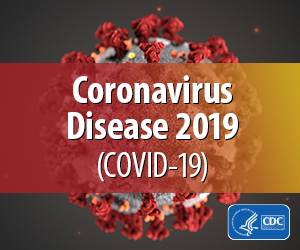In memos dated March 31 and April 13, 2020, Corey Ellis, Acting Director of the U.S. Department of Justice’s (DOJ’s) Executive Office for United States Attorneys, temporarily suspended civil penalty payments, including stipulated penalties for which a demand has been made, owed to the federal government under consent decrees through May 31. The temporary suspension does not apply to ongoing litigation, appeals, or cases that are not subject to a final, non-appealable judgment. The temporary suspension also does not apply to the collection and enforcement of debt resulting from a criminal conviction or plea, such as criminal restitution, fines and penalties. Otherwise applicable interest will continue to accrue on amounts due during the suspension.
DOJ’s April 13 clarification memo makes clear that:
- The temporary suspension does not apply to the filing of liens, as such a filing does not require a response from the debtor.
- The temporary suspension does not impact DOJ’s ability to investigate, file complaints, litigate to judgment, or settle any civil enforcement matters.
- The temporary suspension does not prohibit DOJ from collecting voluntary settlement payments pursuant to a voluntary settlement agreement, as such payments are still permitted under the new policy.
- If a settlement agreement is breached, the new policy does not prohibit pursuing any of the remedies made available to the United States by the terms of the parties’ settlement agreement, including seeking a default judgment. However, if a default judgement is obtained, the temporary policy prohibits executing on the judgment through May 31, 2020.
According to the DOJ, the new temporary suspension policy is needed “to mitigate the financial impact of the coronavirus (COVID-19) pandemic.” The duration of the policy may be extended by legislation or other administrative action depending on future circumstances.
Prior U.S. EPA COVID-19 Enforcement Guidance
The DOJ is not the first agency to exercise enforcement discretion during the COVID-19 pandemic. As Benesch previously reported, U.S. EPA “does not expect to seek penalties for violations of routine compliance monitoring, integrity testing, sampling, laboratory analysis, training, and reporting or certification obligations in situations where the EPA agrees that COVID-19 was the cause of the noncompliance and the entity provides supporting documentation to the EPA upon request.” The guidance, however, did not apply to compliance issues arising under Superfund and RCRA Corrective Action instruments.
The second wave came in the form of “Interim Guidance” that was specifically tailored to deal with issues arising under Superfund and RCRA Corrective Action instruments, such as consent decrees entered into with DOJ or EPA orders. The Interim Guidance outlines how EPA Regional Offices should handle potential interruptions in work during the pandemic at EPA-lead cleanups at private sites and federal facilities, and includes factors that all Regional Offices should consider when determining whether to delay, modify or suspend response actions. The Interim Guidance did not supersede or amend existing enforcement instruments, which often contain a force majeure provision that may excuse performance of certain remedial obligations due to external forces, as long as the specific notice obligations are complied with. However, neither the first nor second wave of guidance documents addressed continuing penalty payment obligations made pursuant to enforcement instruments, like consent decrees.
Analysis
DOJ’s new penalty policy appears to be in line with the initial enforcement discretion guidance issued by EPA on March 26, 2020. In the guidance, Susan Bodine, EPA’s Assistant Administrator for Enforcement and Compliance Assurance, wrote with respect to consent decrees entered into with the Agency that “ EPA staff will coordinate with DOJ to exercise enforcement discretion with regard to stipulated penalties for the routine compliance obligations … and will also consult with any co-plaintiffs to seek agreement to this approach.” The guidance goes on to state that “Parties should proceed as proposed in their notice to the EPA (and to DOJ for consent decrees) unless and until contacted by the agency (if an EPA administrative settlement) or DOJ (if a judicial consent decree).”
Parties subject to civil penalties pursuant to a consent decree with the DOJ may receive a letter from DOJ halting debt collection until after May 2020. Affected parties may then voluntarily continue paying their penalties in full, make interest-only payments, or halt payments altogether through May 31, 2020, unless the deadline is extended.
Parties that do not receive a letter from DOJ should not assume that their penalty payments are halted. Failure to comply with the terms of a consent decree, such as failure to make a penalty payment, could trigger additional penalties and interest under the terms of the consent decree, and under extreme circumstances, it could trigger a contempt of court motion from the United States.
Parties that question whether they are excused from making penalty payments and have not received a letter from the DOJ should confirm in writing their status with the DOJ prior to the payment deadline.
If you have any questions regarding the content above, please contact a member of Benesch’s Real Estate & Environmental Practice Group.
Kevin D. Margolis at kmargolis@beneschlaw.com or 216.363.4161.
Reed W. Sirak at rsirak@beneschlaw.com or 216.363.6256.
***
Please note that this information is current as of the date of this Client Alert, based on the available data. However, because COVID-19’s status and updates related to the same are ongoing, we recommend real-time review of guidance distributed by the CDC and local officials.

